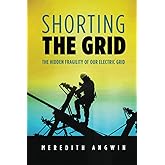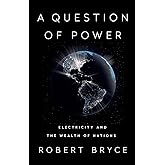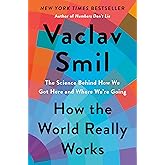
Enjoy fast, free delivery, exclusive deals, and award-winning movies & TV shows with Prime
Try Prime
and start saving today with fast, free delivery
Amazon Prime includes:
Fast, FREE Delivery is available to Prime members. To join, select "Try Amazon Prime and start saving today with Fast, FREE Delivery" below the Add to Cart button.
Amazon Prime members enjoy:- Cardmembers earn 5% Back at Amazon.com with a Prime Credit Card.
- Unlimited Free Two-Day Delivery
- Streaming of thousands of movies and TV shows with limited ads on Prime Video.
- A Kindle book to borrow for free each month - with no due dates
- Listen to over 2 million songs and hundreds of playlists
- Unlimited photo storage with anywhere access
Important: Your credit card will NOT be charged when you start your free trial or if you cancel during the trial period. If you're happy with Amazon Prime, do nothing. At the end of the free trial, your membership will automatically upgrade to a monthly membership.

Download the free Kindle app and start reading Kindle books instantly on your smartphone, tablet, or computer - no Kindle device required.
Read instantly on your browser with Kindle for Web.
Using your mobile phone camera - scan the code below and download the Kindle app.

OK
Shorting the Grid: The Hidden Fragility of Our Electric Grid Hardcover – October 19, 2020
Purchase options and add-ons
When rolling blackouts come to the electric grid, they will be old news to the grid insiders.
Only the electricity customers will be surprised.
Grid insiders know how fragile the grid is becoming. Unfortunately, they have no incentive to solve the problems because near-misses increase their profits. Meredith Angwin describes how closed meetings, arcane auction rules, and five-minute planning horizons will topple the reliability of our electric grid. Shorting the Grid shines light on our vulnerable grid. It also suggests actions that can support the grid that supports all of us.
- Print length440 pages
- LanguageEnglish
- PublisherCarnot Communications
- Publication dateOctober 19, 2020
- Dimensions6 x 1 x 9 inches
- ISBN-100989119084
- ISBN-13978-0989119085
The Amazon Book Review
Book recommendations, author interviews, editors' picks, and more. Read it now.
Frequently bought together

Customers who viewed this item also viewed
Editorial Reviews
Review
In Shorting the Grid, Meredith Angwin provides an enormously valuable, clear, and succinct explanation of our most important network...If you care about the future of our increasingly electrified world, buy this book and read it.
- Robert Bryce, author of A Question of Power: Electricity and the Wealth of Nations
An eye-opening exposé of our grid's vulnerabilities...If you take for granted that the lights go on when you flip a switch, this book may blow your mind.
- Joshua S. Goldstein, author of A Bright Future, How Some Countries have Solved Climate Change and the Rest Can Follow
Shorting the Grid is full of sharp writing and engaging stories about the most hidden part of our grid - how grid-level decisions are made.
- Dan Nott, artist and author of Hidden Systems, a forthcoming graphic non-fiction book on infrastructure
The National Academy of Engineering describes the U.S. power grid as the "supreme engineering achievement of the 20th century." ...Shorting the Grid reveals reasons why we must pay more attention to grid governance and the potential of poor decisions to override technical successes.
- Rod Adams: blogger at Atomic Insights, Managing Member at Nucleation Capital LP
About the Author
Product details
- Publisher : Carnot Communications (October 19, 2020)
- Language : English
- Hardcover : 440 pages
- ISBN-10 : 0989119084
- ISBN-13 : 978-0989119085
- Item Weight : 1.66 pounds
- Dimensions : 6 x 1 x 9 inches
- Best Sellers Rank: #1,070,588 in Books (See Top 100 in Books)
- #25 in Natural Gas Energy
- #61 in Energy Policy (Books)
- #163 in Electric Energy
- Customer Reviews:
About the author

As a working chemist, Meredith Angwin headed projects that lowered pollution and increased reliability on the electric grid. Her work included pollution control for nitrogen oxides in gas-fired combustion turbines and corrosion control in geothermal and nuclear systems. She was one of the first women to be a project manager at the Electric Power Research Institute where she led projects in renewable and nuclear energy.
In the past ten years, she began to study and take part in grid oversight and governance. For four years, she served on the Coordinating Committee for the Consumer Liaison Group associated with ISO-NE, her local grid operator. She teaches courses and presents workshops on the electric grid.
She and her husband George live in Vermont. They have two children and four grandchildren, who live in the New York City area.
Customer reviews
Customer Reviews, including Product Star Ratings help customers to learn more about the product and decide whether it is the right product for them.
To calculate the overall star rating and percentage breakdown by star, we don’t use a simple average. Instead, our system considers things like how recent a review is and if the reviewer bought the item on Amazon. It also analyzed reviews to verify trustworthiness.
Learn more how customers reviews work on AmazonReviews with images
-
Top reviews
Top reviews from the United States
There was a problem filtering reviews right now. Please try again later.
First, RTO refers to regional transmission organization. “In the RTO areas, no group or agency has the responsibility for grid reliability.” … “In RTO areas, the grid is becoming more fragile and more expensive.” …”What about the ‘free market,’ which could conceivably use its invisible hand to bring reliable electricity to the customers? There is no free market. There are false markets, ruled by insider decisions.” Page 5. Keep this thought in mind.
Another complicating factor is that electricity must be made and consumed in real time. “The requirements for electricity on the grid are neither constant nor fully predictable, and electricity must be manufactured and then used within milliseconds.” Page 25. Actually milliseconds may be too long. So getting the balancing of the productions dna demand for electricity for electricity right is very important.
When the grid was managed by vertically integrated Utility owned power plants and distribution lines, their return was based on what they spent on their facilities. Their incentives were to spend “whatever it takes’ to keep their facilities in top shape. This led to much high electrical prices. Reliable, but expensive, electricity. Pages 35-36. Deregulation solved this problem, but reliability became an issue.
Regulations followed. In the Northeast in Chapter 18 the author looks at the regulatory rules effects on reliability. The author observes: “Because resources that do not contribute to system reliability during scarcity conditions earn the same capacity payments as resources that do, it is profitable for resources wiht low costs and poor performance during scarcity conditions to remain in the capacity market.” Page116. This has the effect of displacing better performing and better maintained resources.
It gets cold in the Northeast. Storing oil could alleviate price spikes, but to store oil costs the generator money up=front. “Keeping file on hand is a lose-lose game for the generator. Upfront expenditures will lower future revenues.: Page 145.
The book looks at renewable power sources which doesn’t make life simpler. The author is not opposed to renewables; renewables just don’t make a reliable grid simpler. See the section entitled “Renewables on the Grid” beginning with Chapter 26 on page 183. Chapter 28 looks at “Three Issues with Renewables”.I would encourage you to read this section with an open mind. The author is not opposed to renewables, but she does recognize certain practical realities with renewables (the sun doesn’t always shine and the wind doesn’t always blow, among other things.). Renewables require a significant overbuilding of capacity to provide reliable electricity. See page. 217.
Ultimately the book observes the that electrical grid is the largest machine on earth. Page 281. Managing this machine is a massive undertaking. The more complex the regulatory scheme the more likely unintended negative consequences will arise.
The book caused me to consider carefully my relation to electricity. I really depend on a reliable source of electricity to live my life in the way I wish. I recommend the book highly. Consider the regulatory, generator, transmission system and consumer perspectives. I found the book informative and balanced. Read it.
Get the book if you want to know how energy is delivered to your house and the complex machinery and great people that work in the energy space. - Thanks for stopping by my podcast - Stu
Reviewed in the United States on October 5, 2022
Get the book if you want to know how energy is delivered to your house and the complex machinery and great people that work in the energy space. - Thanks for stopping by my podcast - Stu

If you, like me, think that our electricity markets are not great, then reading this book will help you understand how/why that is, and how we might improve things. If you think that it works well, then the author provides examples of where electricity markets do work reasonably well, and why that is.
And, of course, there are suggestions on what you can do as an individual, or as a group, to make a positive difference, and help improve our electricity markets, or at least keep them from getting worse.
I'd say that every policy maker that deals with energy of any sort should read this. The understanding that you'll come away with is sure to improve your ability to make good decisions and policy.
Highly recommended.












